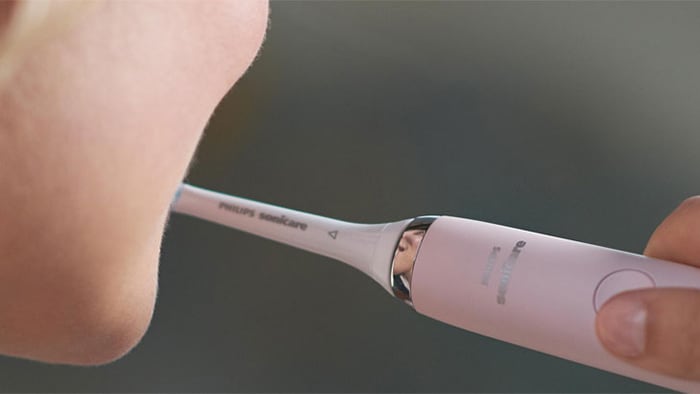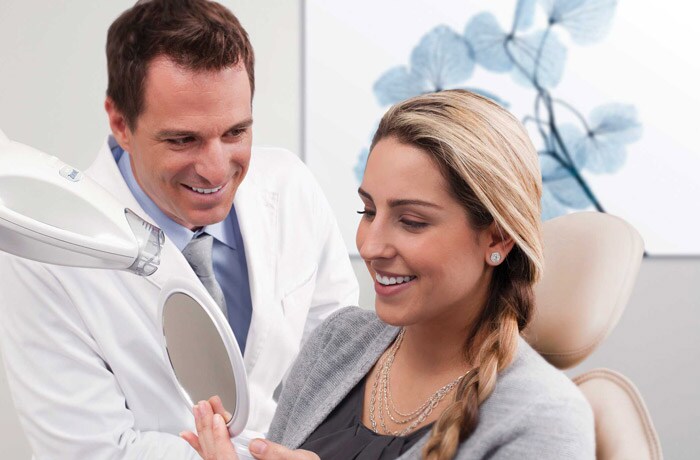
How to use an electric toothbrush

We all know that efficient oral hygiene at home and regular visits to the dentist are essential to maintaining good oral health, but how often should you have your teeth professionally cleaned and what does a dental hygienist do? You may be familiar with the terms ‘professional dental cleaning’ (PDC) or ‘scale and polish’, both of which refer to the process of having your teeth professionally cleaned. However, it’s likely you have a few burning questions about the process, and that is what we’re here for! In this article we’ll explore the answers to FAQs about professional dental cleaning and what happens when you get your teeth cleaned, including: So, read on to discover everything you need to know to be able to book your professional dental cleaning with confidence. In no time at all you’ll be able to achieve the ultimate sparkling smile.

Saliva, food remains and bacteria in your mouth react with one another to form plaque. Usually, this plaque can be removed with thorough, regular brushing, flossing and mouthwash use. However, even following the correct method for toothbrushing and oral care at home isn’t foolproof. Below, we’ll answer frequently asked questions about professional dental cleaning, from ‘what is a dental hygienist?’ to ‘how often should you have your teeth professionally cleaned?’
Left to its own devices, plaque can harden and become tartar.1 If the tartar isn’t removed, this can lead to cavities, bleeding gums, and other dental diseases. Professional cleaning can significantly reduce plaque and tartar and can result in better tooth and gum health over time.2 This is why adults as well as children should regularly have their teeth professionally cleaned. Tip: Professional dental cleaning is key in helping you maintain your oral health, but day-to-day brushing is also essential. You can boost your home care by using top-quality toothbrushes like the Philips Sonicare DiamondClean sonic toothbrush. Together with the W2 Optimal White Brush Head, it removes up to 7 times more plaque than a manual toothbrush.
Now that you know why professional dental cleaning is so important, you’re probably asking yourself, ‘How often should I get my teeth cleaned?’ Ultimately, how often you should have a professional dental cleaning differs for each individual. You should be getting a general dental check-up at least every year or two.3 At your next check-up, just ask, ‘How often should I get my teeth cleaned?’ and your dentist will determine your needs. The answer to ‘how often should you get your teeth cleaned?’ may be around the range of once or twice a year, depending on factors such as whether you’re pregnant, whether you smoke and the general condition of your teeth.
Smoking isn’t just bad for your health; it’s bad for your teeth, too. If you’re a smoker, you may need to have your teeth professionally cleaned more frequently. This is due to the fact that nicotine causes teeth discolouration. While light discolouration can be rectified with some simple steps at home, dark yellow or brown stained teeth and tartar build-up will need to be professionally cleaned at your dentist’s.
You know you need to go to your dentist's practice to get a professional cleaning, but did you know you’ll be booked in with the team dental hygienist, not the dentist? So, what does a dental hygienist do?4
So, how do hygienists clean teeth? There are three key steps to your dental hygiene appointment and what happens when you get your teeth cleaned:5
Depending on your personal oral hygiene, a scale and polish can take different lengths of time. Generally, however, professional dental cleaning will take around 45 minutes.6
If your dentist decides you’re in need of professional tooth cleaning, you can get a scale and polish on the NHS. This may be charged as a Band 1 dental treatment (£23.80) or as Band 2 (£65.20), depending on how much work needs to be done. For example, if gum problems need to be treated in the process, it may be considered a Band 2 treatment.7 If your dentist doesn’t feel professional cleaning is clinically necessary, you’ll need to pay for it privately. Private costs for a scale and polish can be similar to the NHS costs, ranging from £25 to around £85.8 Tip: If you follow the steps to maintain good oral hygiene at home and stick to regular professional cleaning appointments, the effort required for a professional dental cleaning will be less, thus lowering the cost of the treatment.
Usually, a scale and polish is not painful. People with sensitive teeth and exposed tooth necks, however, might experience pain during the procedure. In these cases, your dentist may offer you some local anaesthesia. This will allow you to experience the treatment pain-free. With our answers to FAQs like ‘how do hygienists remove plaque?’, how much it costs and whether or not it’s painful, we’ve shared a full understanding of professional dental cleaning. Now you can book your visit to the dental hygienist without any worries. To end, we have one more piece of advice. As well as looking after your own oral hygiene, teach your children to brush their teeth regularly in order to prevent damage and maintain healthy teeth and a bright smile.